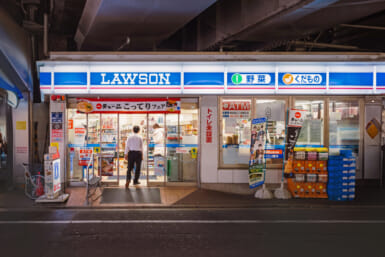Finding the perfect house or apartment is hard enough and when language barriers are thrown into the equation it can seem an impossible task. But contracts, strange landlords and squat toilets aside there is another massive pitfall when it comes to finding your perfect place, money.
Moving house in Japan can quickly become a bank-breaking endeavor as hidden costs, both small and large, can nickel and dime you into a less-than-perfect living situation. Cleaning fees, lock changing and the ever-dreaded key money, it seems there is no end to the onslaught of fees thrown at the everyday house hunter. For those wanting to save money during their move, here are some fees one might come across when moving house and some ways to lessen or outright avoid them.
Note that those with unstable working situations or those who find themselves between jobs may find negotiations next to impossible.
Avoid the Peak
The first tip to avoiding fees is simple: don’t move house during peak season. Like with everything, timing is key and your ability to negotiate prices with the landlord and the real estate agents will all depend on when you choose to move house. Those trying to move during peak season, late February until late April, will find that they are the only ones sitting at the negotiation table. The point is, there is so much competition during peak moving time that there is no need for landlords or real estate agents to negotiate with you, as there are surely many other clients hoping for the same house.
Pro Tip: If one has no choice but to move during the peak season try to avoid moving in late March through early April, as this is super peak season where not only can almost no negotiations be made, but moving companies also charge top dollar.
Key Money
The horrors of key money haunt the dreams of many an apartment hopeful. This one-off payment of up to one to two months’ rent is still prevalent and can be seen in many housing advertisements. However, if you’ve followed the first piece of advice and are moving house during the off-peak months you’ve entered into a situation where you may be able to negotiate the key money down to zero.
“Key money is the easiest fee to negotiate”
Key money is the easiest fee to negotiate as this fee is directly paid to the landlord as a gift of sorts. The Japanese word for this is actually 礼金 which translates to “Thank you money.” Not entirely sure how this was turned to the more palatable “key money,” as there is an entirely separate cost for lock changing fees (which we will get to later). When one enters negotiations, key money is the first thing to target as this payment serves no end other than lining pockets.
Places that have more than one month of key money can usually be negotiated down as this fee is literally a thank you to the landlord. Generally speaking, apartments that are owned by non-Japanese people often do not have key money as they don’t seem to be tied down by this, now outdated, tradition.
Lock Changing Fee
Compared to key money the lock changing fee isn’t as terrifying, but at around ¥20,000 it’s a cost we’d all rather have removed if possible. There is one sure-fire way to remove this fee – simply ask that the locks not be changed. Granted, by doing this you’ll have the same locks as the tenant before you, but as we all return our house keys at the end of the contract to not invoke a hefty fine, using the same locks seems like the smart play for those trying to save money.
There is, however, a situation where the lock changing fee cannot be removed. In cases where you are moving into a new apartment complex where the unit has never been lived in before, the locks must be changed as for easy access, the landlord will usually use the same lock and key for every apartment. For those who want the locks changed, once again timing is everything, and if you’re moving during the non-peak months the landlord will be more willing to lower the costs of the lock changing fee during negotiations.
Shop Around
While large real estate agencies may seem to be the easiest way to quickly and smoothly find a new place, sometimes a smaller local agency may be just as good if not better. Some larger agencies aren’t completely used to dealing with foreigners and thus simple steps like double checking if an apartment is foreigner-friendly may be overlooked by the agency. While this oversight won’t cost you monetarily, if you are on a time crunch it can be devastating as you are forced to move back to square one. Smaller local agencies generally have more time to look at you as an individual and will generally take more time to find a place that suits your needs. In the end, shopping around will take more time but it’s the best way to make sure you are getting the best property at the best price.
Guarantor company
In Japan, the role of guarantor has been taken over by an entire industry, and while a person you know can still be your guarantor, almost everyone in Japan must still go through a guarantor company. It’s not all doom and gloom. The guarantor company pretty much acts as renter insurance, so if there ever was a situation where you couldn’t pay rent the company would step in.
“It’s not all doom and gloom”
The guarantor company charges a one-time fee of anywhere between 30% of one-month’s rent plus manager fee to over 100%. Those numbers are usually based on a case-by-case basis, with the guarantor agency doing a basic background check on the tenant to check if their information is correct. Some guarantor companies might charge you monthly instead of yearly, to the tune of up to 5% of rent and management fees per month. Usually, these companies have some kind of special service, such as providing translation services and help to tenants.
Super Hidden Fees
These super hidden fees are ones that usually slip the mind of the hopeful tenant until the final agreement is presented before them. These are fees that should be kept in mind and confirmed with the real estate agent at the time of the house viewing.
The Security Deposit is something we are all familiar with. Depending on the condition of the department when you move out you could receive up to 100% of it back. However, the chances of this happening are next to impossible because of this other hidden fee, the cleaning fee. The cleaning fee is the final cost you come across as it only appears when you eventually move out of the apartment. The fee can cost anywhere between ¥30,000 to ¥70,000 and the fee is usually taken out of your security deposit. No matter how clean the apartment when you move out, everyone is subjected to the cleaning fee.
Some real estate agents charge what is called a contract production fee or a processing fee. This can cost from anywhere between ¥10,000 to ¥20,000, and is usually non-negotiable. The final hidden fee people usually overlook is Fire Insurance. This can be anywhere between ¥15,000 to ¥25,000 and is non-negotiatiable as it’s required by law.
Everyone Gets Paid: Commission
After all that searching and negotiating, we’ve come to the last piece of the puzzle – the real estate agent’s commission. This can be anywhere from around half to a full month’s rent plus tax, which, depending on the rent of your expected house, can be quite a lot. This fee is not that negotiable even if you are moving into a house with a pretty hefty monthly rent. In the end, it’s between you and the agency. For agencies who’ve gone above and beyond to get you into that perfect house perhaps the payment is worth it. For those who paid little attention to your needs maybe it’s time to once again take a seat at the negotiation table.
Special thanks to ihome Real Estate for providing insight. ihome Real Estate is a boutique premier real estate agency with foreign staff in Nakameguro. Learn more at i-home.tokyo









